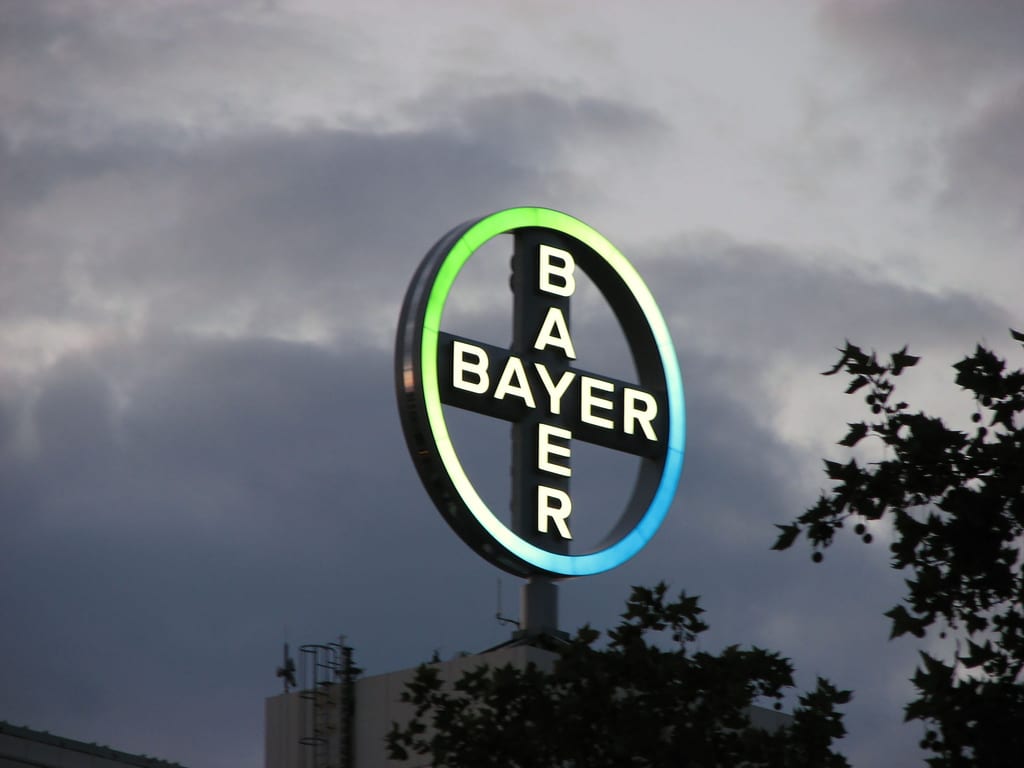Global giant Bayer has a plethora of products on the market. It also has a sizable list of lawsuits over injuries some of these products have caused.
Bayer is a German company known around the world for its over-the-counter and prescription medications, household cleaning products, medical devices and even animal and agriculture products. However, the original maker of aspirin has also become synonymous in recent years for a growing number of lawsuits filed by consumers and their families. Many of these plaintiffs claim that Bayer is negligent of customer safety and did not adequately warn consumers of potential side effects of its products, devices and medications. Detailed below are some of Bayer’s most notable recalls, bans and lawsuits.
Essure
Essure is a device that is designed to offer permanent contraception for women. Acting as a sterilization method for the female reproductive system, Essure consists of a metal coil that is surgically embedded into each fallopian tube. The device then creates scar tissue in each tube to block any sperm from reaching and fertilizing a woman’s eggs. Essure first hit the market in 2002, and was acquired in 2013 by Bayer.
Some women who used Essure were subjected to many health complications as a result of the device. There have been instances of one or both coils migrating out of the fallopian tubes, which led to unwanted and unsafe pregnancies, as well as the formation of scar tissue elsewhere in the reproductive system. In other cases, the coils pierced one or both of the fallopian tubes, resulting in internal bleeding and excess scar tissue. In several extreme scenarios, women had to undergo complete hysterectomies to fully remove the Essure coils and to alleviate their pain.
Essure was banned in Australia and sales were stopped in every country except the United States in 2017. Bayer then announced that it would be removing Essure from the American market by 2019, just before the Netflix documentary about dangerous medical devices (including Essure) The Bleeding Edge became available to stream. Currently, more than 18,000 American women have taken the German conglomerate to court after experiencing unsafe and unwanted side effects from the device.
Mirena
Mirena is an intrauterine device (IUD) that releases hormones for long-term contraception. The device is reversible and does not affect a woman’s fertility after it has been taken out. However, many women who use Mirena have experienced painful and dangerous side effects because of the device. One in every 12, or 8 percent, of Mirena users’ bodies reject the IUD, which is known as “expulsion.” Furthermore, many patients also suffer from perforation or migration where the device pierces the uterine wall and moves to other parts of the reproductive tract or abdominal cavity. This causes extreme pain for users, scar tissue to form, and it often requires surgery to remove the device from elsewhere in the body.
While Bayer did issue warnings and list side effects for Mirena, thousands of women felt that they were not fully warned of the potential side effects and health complications that can come with the IUD. In 2018, more than 4,000 lawsuits regarding side effects and complications were settled by Bayer.
Xarelto
Xarelto is the second most commonly used blood thinner in the United States. It is produced by Bayer but the medication formula and name are both owned by Johnson & Johnson. This anticoagulant is attractive to potential patients because it is prescribed to be taken once a day, unlike most other blood thinners which are taken twice a day. However, an unfortunate drawback of the anticoagulant was its lack of an antidote. In fact, it did not have an FDA-approved antidote until May 2018, while many other blood thinners can be reversed with the use of Vitamin K. Blood thinners need to have readily available antidotes because if a patient does not react well to the medication, the patient’s blood may not be able to clot.
Because of this lack of an antidote, if an early Xarelto patient suffered an injury while on the blood thinner, it could lead to uncontrolled bleeding, both internally and externally, and could create hemophiliac-like symptoms. Because users felt that these extreme complications were not made known, Johnson & Johnson and Bayer have been involved in more than 23,000 court proceedings over Xarelto.
RoundUp

The commonplace weed killer RoundUp is an herbicide that uses an active ingredient called glyphosate. While RoundUp is known by most as a Monsanto product, it was acquired by Bayer when the company expanded its agricultural department in a buyout of Monsanto in 2018. This ingredient is effective at killing unwanted plants, but it has also been deemed a probable human carcinogen by the World Health Organization. Medical professionals have found a strong correlation between glyphosate and non-Hodgkin’s lymphoma, leukemia and b-cell lymphoma cancers. RoundUp is one of the most widely-used weed killers worldwide, it is sold in more than 160 countries and more than 6 billion kilograms (13 billion pounds) are used annually.
Gardeners, landscapers, groundskeepers and other frequent users of RoundUp have the highest risk of developing one of the aforementioned terminal cancers. Just two months after Bayer’s acquisition of Monsanto, a jury ordered Bayer to pay out nearly $300 Million to a groundskeeper who was diagnosed with terminal lymphoma caused by his RoundUp use. This was just one of thousands of pending cases against RoundUp and Bayer.
Bayer and its properties have sold countless medications, devices and products that many consumers and legal professionals believe were known by the company to be harmful. More than 40,000 cases have been filed against Bayer concerning extreme side effects that have harmed, wounded or even killed consumers. Because Bayer creates products that are used in every industry from over-the-counter pain relief to animal medications, it is imperative that consumers are informed of the effects of Bayer’s medications, devices and more. No one should have to blindly place their trust and health in the hands of a company that has been fatally negligent.


Join the conversation!